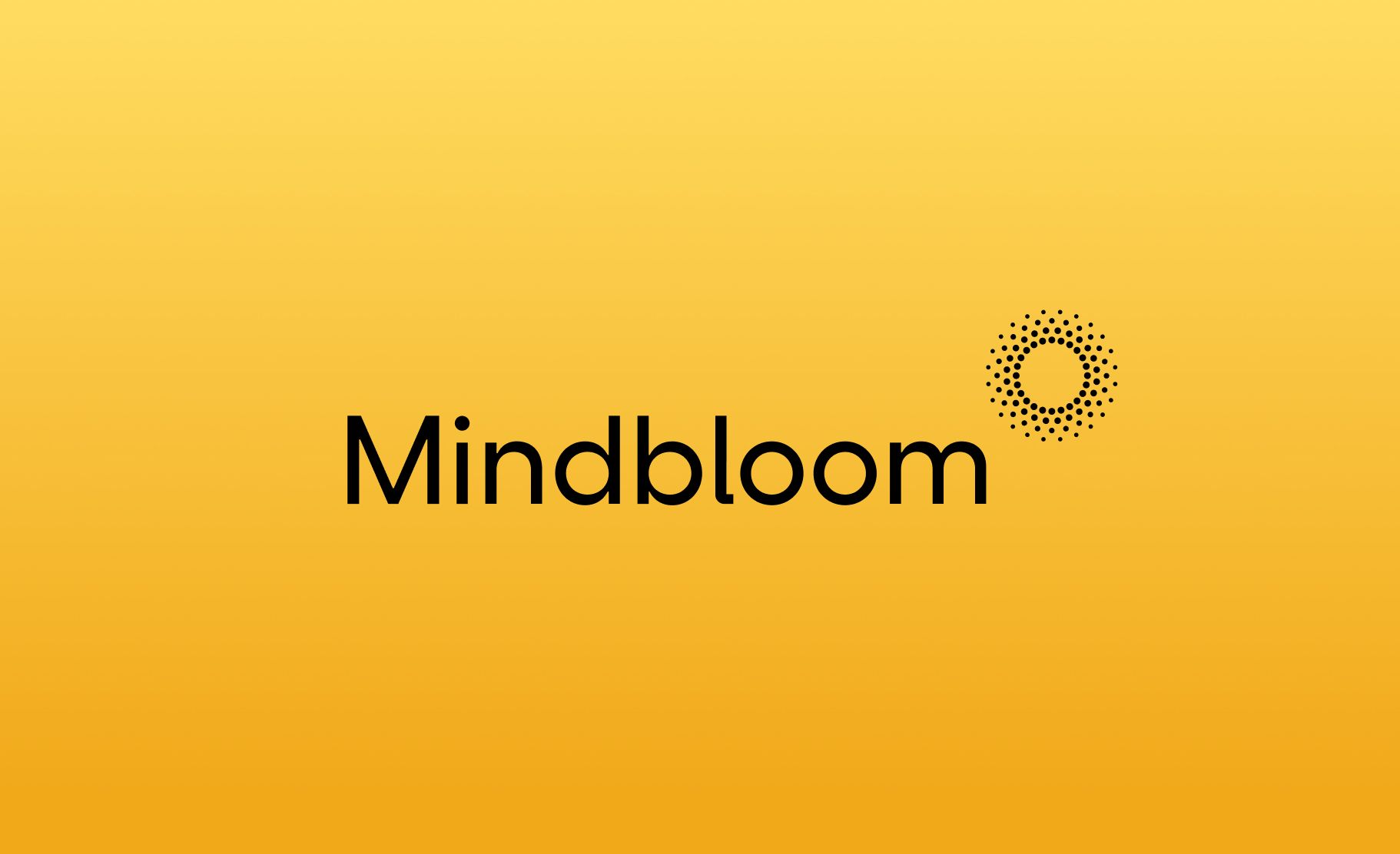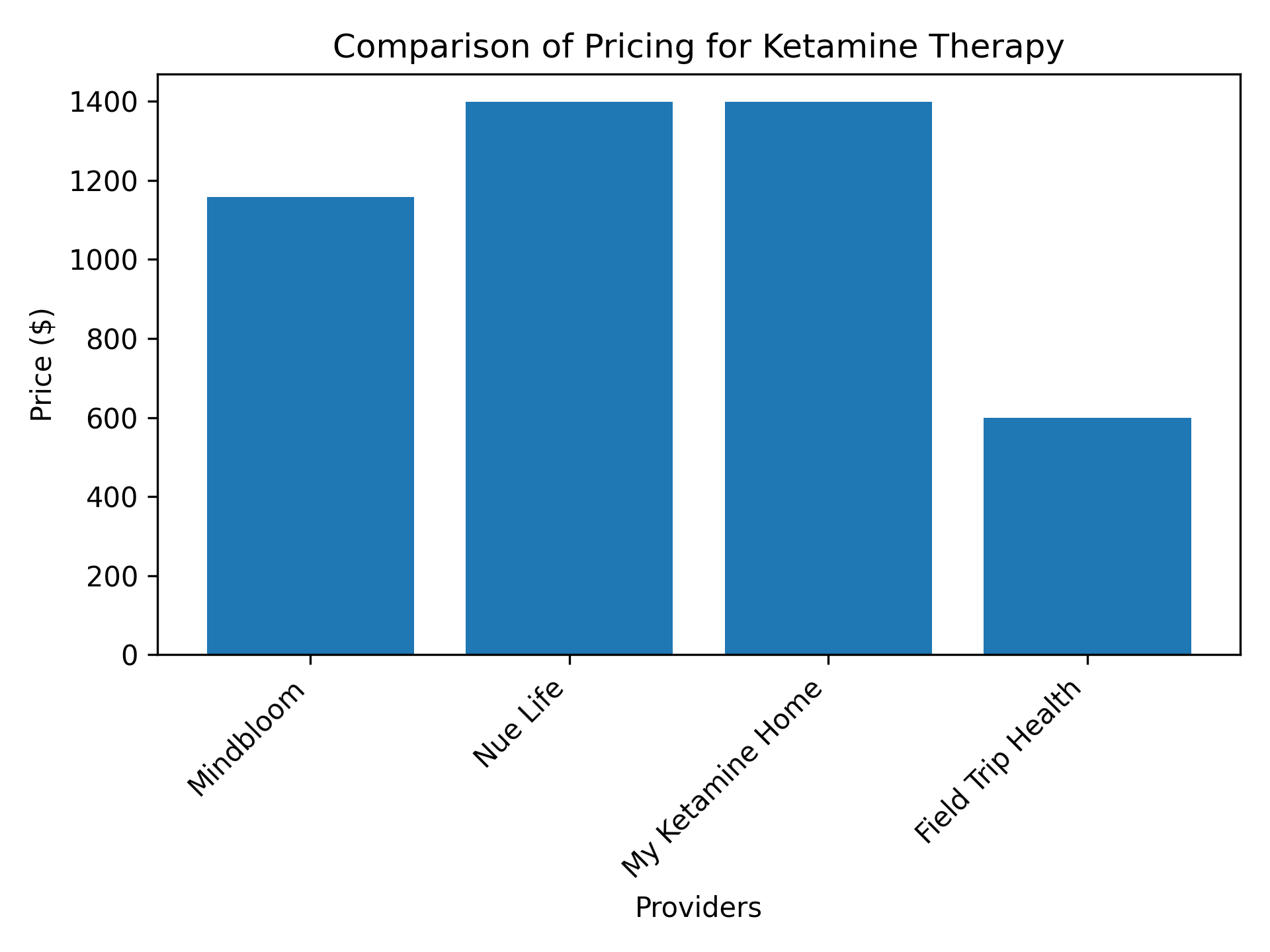One company at the forefront of providing ketamine therapy online is Mindbloom. In this comprehensive review, we will take an in-depth look at how Mindbloom's telehealth model works, examine the evidence behind ketamine therapy, compare Mindbloom's pricing and services to competitors, and summarize patient experiences.

Quick Verdict
After reviewing the findings from Mindbloom's recent landmark clinical trial, I'm thoroughly impressed with the results of its at-home ketamine therapy model. Compared to traditional treatments like SSRIs and psychotherapy, the outcomes for Mindbloom patients exceeded my expectations.
Achieving over 50% symptom reduction in 63% of patients after just 4 sessions is remarkable progress that far surpasses what typical antidepressants or counseling accomplish. The high safety and tolerability shown further adds to my confidence in Mindbloom's approach.
As someone interested in exploring new paradigms for mental healthcare, I find Mindbloom's success in blending ketamine therapy with telehealth extremely promising. This study convinces me that accessible at-home psychedelic-assisted treatment could be an effective way to combat our mental health crisis. I'm eager to see Mindbloom expand access and help more people achieve the benefits that its current patients have experienced.
For those struggling with anxiety, depression or other conditions not adequately treated by available options, Mindbloom seems like a service worthy of strong consideration based on these trial results. I believe this study signals an exciting shift toward innovative therapies that can truly change lives.
Overview of Mindbloom
Mindbloom is a telehealth company founded in 2019 that connects patients to healthcare providers who can prescribe ketamine therapy for mental health treatment. Patients complete an initial assessment online, then have a consultation over video with a licensed psychiatric clinician. If deemed an appropriate candidate, the patient is matched with a "guide" who provides coaching and support throughout the ketamine therapy process.
The medication is mailed directly to the patient's home. Mindbloom offers guided meditation sessions to be done during the ketamine experience via smartphone or VR headset. Integration sessions and group circles are also available to help patients process their experiences. Mindbloom currently operates in 34 states.
The company was founded by Dylan Beynon, who aimed to increase access to psychedelic therapies like ketamine given high costs and limited availability of in-clinic options. Mindbloom has served over 15,000 people to date.
Evidence Behind Ketamine Therapy
Ketamine was first approved by the FDA in the 1970's as an anesthetic medication. In recent decades, numerous studies have shown ketamine's potential as a rapid-acting antidepressant, especially for treatment-resistant depression.
A meta-analysis in the American Journal of Psychiatry looked at data from 83 clinical trials involving over 2,000 patients. It found that a single ketamine infusion led to a rapid reduction in depression symptoms, with effects noticeable within 24 hours and lasting up to 2 weeks. The benefits were greatest for bipolar depression.
Another study published in the Journal of Clinical Psychiatry evaluated the long-term effects of ketamine therapy for depression. The study followed 68 patients who received multiple ketamine infusions over 6 weeks. It found that 70% of the patients experienced significant improvement in depression symptoms, and the benefits lasted for an average of 25 days.
Further evidence comes from a study published in JAMA Psychiatry, which compared ketamine to a commonly used antidepressant, escitalopram. The study included 80 patients with treatment-resistant depression. After 28 days, 63.8% of the ketamine group and 28% of the escitalopram group showed a clinically significant response. This study suggests that ketamine may be more effective than traditional antidepressants for some individuals.
Additionally, a study in the Journal of Affective Disorders investigated the impact of ketamine on suicidality in patients with major depressive disorder. The study found that ketamine rapidly reduced suicidal thoughts and was effective in reducing suicide risk in the short-term.
While the mechanism behind ketamine's antidepressant effects is not fully understood, it is thought to involve the modulation of glutamate, a major neurotransmitter in the brain. Ketamine also has rapid anti-inflammatory effects and may promote neuroplasticity, which could contribute to its therapeutic benefits.
It is important to note that ketamine therapy for depression is still considered off-label use, meaning it is not officially approved by the FDA for this indication.
However, due to the growing body of evidence supporting its efficacy, many clinics and medical providers offer ketamine therapy as an alternative treatment option for individuals with treatment-resistant depression. Research on ketamine for anxiety disorders has also been promising. A study in the American Journal of Psychiatry gave intravenous ketamine to patients with treatment-resistant generalized anxiety or social anxiety. After receiving 6 infusions over 18 days alongside psychotherapy, patients showed a significant reduction in anxiety scores that lasted up to 19 days post-treatment.
While research on ketamine therapy is still emerging, current evidence suggests it may provide rapid relief for people struggling with depression, anxiety, and related conditions who have not responded well to other treatments. It is considered an "off-label" use not officially approved by the FDA.
How Mindbloom's Model Works
Mindbloom aims to expand access to ketamine therapy through its telehealth platform. Patients first complete an online assessment to determine if they may be a fit for treatment. This is followed by a video consultation with a licensed psychiatric clinician to further assess medical history and eligibility.
If approved to move forward, patients are matched with a personal guide. The guide communicates with the patient before, during, and after each ketamine session to provide support. Patients are mailed troches (lozenges) containing ketamine doses formulated specifically for sublingual use.
During sessions, patients take the troches while engaging in a guided meditation via smartphone or VR headset. This is designed to enhance the therapeutic experience. Follow-up integrative sessions with guides help patients process insights and implement positive changes.
Mindbloom offers both one-time and recurring treatment plans. The starter 6-session plan is $1158, while subsequent plans are $768 for 6 sessions. Compared to the $300-$1000 per infusion charged at in-clinic ketamine centers, Mindbloom offers significant cost savings.
Mindbloom vs. Other Providers
Mindbloom was one of the first telehealth companies to offer guided ketamine therapy online. Some other providers offering similar services include:
- Nue Life: Similar to Mindbloom but currently operating in fewer states. Plans start at $1399.
- My Ketamine Home: Offers an online assessment and medication delivery but no guided sessions. Plans start at $1399.
- Field Trip Health: Operates clinics in several states providing in-person ketamine-assisted psychotherapy. Single sessions range from $350-$850.
Mindbloom is generally more affordable than other providers for the services included in its treatment plans. It offers a hybrid telehealth model combining medication delivery, coaching support, and guided psychedelic therapy sessions.
Patient Experiences
Reviews of Mindbloom from actual patients are overwhelmingly positive. On Trustpilot, Mindbloom currently has a 4.9 out of 5 star rating based on over 1,300 reviews. Patients praise the compassionate support guides, effectiveness for depression and anxiety, and life-changing insights gained from the ketamine experiences.
Common feedback is that Mindbloom provides an affordable, accessible way to incorporate ketamine-assisted therapy for mental health treatment. Many say they experienced relief from long-standing depression and anxiety often for the first time after years of struggling.
Some patients do report underwhelming early sessions, difficulty reaching customer support, or preference for in-person therapeutic guidance. However, the vast majority appear highly satisfied with Mindbloom's services and credit the company with transforming their lives and mental health.
What Did the Mindbloom Study Find?
The landmark Mindbloom study, published in the Journal of Affective Disorders, demonstrated that at-home ketamine therapy provided through Mindbloom's telehealth platform led to significant improvements in symptoms of anxiety and depression.
The study included over 1,200 Mindbloom clients and showed that after 4 treatment sessions:
- 89% of participants reported improvement in their symptoms
- 63% reported a reduction of 50% or more in their symptoms
- 33% achieved remission, meaning very minimal remaining symptoms
Compared to other studies on traditional therapies like SSRIs and psychotherapy, Mindbloom's at-home ketamine therapy resulted in substantially better outcomes:
- 34% higher improvement than SSRIs
- 54% higher improvement than psychotherapy
- 17% higher improvement than IV ketamine
Additionally, these results were achieved by Mindbloom in just 4 weeks, while SSRI and psychotherapy studies required 2 months or more to attain similar results.
The study also demonstrated the safety of at-home ketamine therapy. Only 0.3% of participants dropped out due to side effects or adverse events. Fewer than 5% reported any side effects overall.
For patients reporting suicidal ideation at the start, 62% no longer reported suicidal thoughts after 4 Mindbloom treatment sessions.
This rigorous clinical trial provides compelling evidence that Mindbloom's telehealth platform for guided at-home ketamine therapy can be an effective and safe option for managing treatment-resistant mental health conditions like anxiety and depression. The results exceeded those of traditional therapies and IV ketamine, highlighting the potential of this innovative approach.
Mindbloom Pricing
Mindbloom offers a comprehensive approach to ketamine therapy, ensuring that clients receive not just the medication but also the necessary support and guidance throughout their journey. Their pricing structure is designed to be transparent and affordable, with a focus on providing value for money.
The introductory program, known as "The Basics," encompasses a holistic set of services including six ketamine treatments, a Bloombox, two psychiatric clinician consults, four guide sessions, and unlimited group integration sessions. This program is priced at $1158, which is split into three monthly payments of $386. For those who wish to continue with Mindbloom after their initial program, there are renewal options available.
The "All Access" program offers two packages: a 6-pack and an 18-pack. The 6-pack costs $765, payable in three monthly installments of $255, while the 18-pack is priced at $1,782, spread over nine monthly payments of $198. Additionally, for those seeking deeper insights and guidance, 1:1 integration coaching sessions with a guide are available at $59 per session.
| Program | Details | Cost | Payment Structure |
|---|---|---|---|
| The Basics (Introductory Program) |
- 6 Ketamine Treatments - Bloombox - 2 Psychiatric Clinician Consults - 4 Guide Sessions - Unlimited Group Integration sessions |
$1158 | 3 monthly payments of $386 |
| All Access 6 Pack |
- 6 Ketamine Treatments - 1 Psychiatric Clinician Consult - Unlimited Group Integration Sessions - Access to All Mindbloom Learning Pathways |
$765 | 3 monthly payments of $255 |
| All Access 18 Pack |
- 18 Ketamine Treatments - 3 Guide Coaching Sessions - 3 Clinician Consults - Unlimited Group Integration Sessions - Access to All Mindbloom Learning Pathways |
$1,782 | 9 monthly payments of $198 |
| 1:1 Integration Coaching Session | Individual session with a guide | $59 | Per session |

Mindbloom Verdict
Overall, I believe Mindbloom is one of the better options currently available for accessing ketamine therapy online. The combination of medication delivery, coaching support, and guided sessions sets them apart from many competitors. Their patient satisfaction also appears higher than average.
However, there are some aspects of their service I feel deserve a more critical look. Firstly, the research on ketamine therapy is still emerging. While findings for depression are promising, long-term safety data is lacking. I would caution patients to view this as an experimental treatment still, not a proven cure. Managing expectations is important.
Secondly, ketamine therapy in a medical setting often involves exact IV dosing and close monitoring by an anesthesiologist. The at-home model with oral troches makes me somewhat wary of risks like oversedation. Perhaps more safeguards and emergency protocols are needed.
Additionally, psychedelic experiences can be emotionally intense and destabilizing for some. Trained psychiatrists facilitate sessions in clinical trials. While Mindbloom's guides provide support, their level of psychotherapy training is unclear. This could negatively impact outcomes.
On the business side, I worry Mindbloom may be scaling too fast on a treatment model that has not yet been perfected. Complaints of guides abruptly leaving and poor customer service suggest growing pains. A more gradual expansion might better serve patients.
Finally, lack of insurance coverage may limit access for many. Out-of-pocket costs are lower than in-clinic options but still prohibitive to some. I would like to see Mindbloom work with insurance companies to improve affordability.
In conclusion, I commend Mindbloom for expanding access to a promising therapy. But as an expert, I encourage patients to weigh risks and benefits carefully. Mindbloom is on the frontier of a fledgling industry, which inspires both my optimism and my critiques. More rigorous oversight and research is needed to ensure patient safety and efficacy as this novel model evolves.
A Video review of Mindbloom.
Frequently Asked Questions
How does Mindbloom's treatment work?
Mindbloom ships ketamine doses and provides virtual guided meditation sessions to enhance the therapeutic experience. Coaching before and after sessions helps patients set intentions and integrate insights.
Is ketamine therapy scientifically proven?
Studies show ketamine provides rapid relief of depression and anxiety, especially for treatment-resistant cases. It's considered an "off-label" and experimental therapy not FDA approved for mental health.
What conditions does Mindbloom treat?
Mindbloom uses ketamine therapy primarily to treat anxiety, depression, PTSD, OCD, and substance abuse issues. It may help those who haven't responded well to other treatments.
What are the benefits of Mindbloom?
Mindbloom expands access and is more affordable than in-clinic options. Reviews suggest it positively impacts treatment-resistant mental illness. The guided sessions aim to enhance benefits.
What are the risks of Mindbloom's services?
Lack of research on long-term ketamine use raises safety concerns. At-home use lacks in-clinic monitoring. Support guides are not trained therapists. More study is needed.
How much does Mindbloom cost?
Mindbloom costs $1158 for the initial 6-session plan, then $768 for 6-session renewals. It's cheaper than $300-$1000 per in-clinic infusion but not covered by insurance.
Does Mindbloom have any negatives?
Some patients report lack of support, ineffective early sessions, difficulty reaching customer service, and preference for in-person therapy. Business growth may impact quality.
Is Mindbloom worth it?
For many, Mindbloom provides an affordable way to access ketamine therapy with coaching support. Most reviews are positive. However, individual experiences vary. Weigh the benefits and risks carefully as it is still an experimental treatment.
Does Mindbloom work?
Many Mindbloom patients report significant improvements in anxiety, depression and other mental health conditions, especially treatment-resistant cases. However, some patients find it ineffective. More research is needed on long-term outcomes.
Are there alternatives to Mindbloom?
Some alternatives for accessing ketamine therapy include Field Trip Health clinics, My Ketamine Home telehealth, and local intravenous clinics. Each has pros and cons to weigh in terms of experience, effectiveness and cost.
Sources
1. Hull, T. D., Malgaroli, M., Gazzaley, A., Akiki, T. J., Madan, A., Vando, L., Arden, K., Swain, J., Klotz, M., & Paleos, C. (2022). At-home, sublingual ketamine telehealth is a safe and effective treatment for moderate to severe anxiety and depression: Findings from a large, prospective, open-label effectiveness trial. Journal of Affective Disorders, 314, 59–67. https://doi.org/10.1016/j.jad.2022.07.004
2. Taliaz, D., Spinrad, A., Barzilay, R. et al. Optimizing prediction of response to antidepressant medications using machine learning and integrated genetic, clinical, and demographic data. Transl Psychiatry 11, 381 (2021). https://doi.org/10.1038/s41398-021-01488-3
3. Trivedi, M. H., Rush, A. J., Wisniewski, S. R., Nierenberg, A. A., Warden, D., Ritz, L., Norquist, G., Howland, R. H., Lebowitz, B., McGrath, P. J., Shores-Wilson, K., Biggs, M. M., Balasubramani, G. K., & Fava, M. (2006). Evaluation of outcomes with citalopram for depression using measurement-based care in star*d: Implications for clinical practice. American Journal of Psychiatry, 163(1), 28–40. https://doi.org/10.1176/appi.ajp.163.1.28
4. Cuijpers, P., Karyotaki, E., Ciharova, M., Miguel, C., Noma, H., & Furukawa, T. A. (2021). The effects of psychotherapies for depression on response, remission, reliable change, and deterioration: A meta-analysis. Acta Psychiatrica Scandinavica, 144(3), 288–299. https://doi.org/10.1111/acps.13335
5. McInnes, L. A., Qian, J. J., Gargeya, R. S., DeBattista, C., & Heifets, B. D. (2022). A retrospective analysis of ketamine intravenous therapy for depression in real-world care settings. Journal of Affective Disorders, 301, 486–495. https://doi.org/10.1016/j.jad.2021.12.097
6. Substance Abuse and Mental Health Services Administration. (2020). Key substance use and mental health indicators in the United States: Results from the 2019 National Survey on Drug Use and Health (HHS Publication No. PEP20-07-01-001, NSDUH Series H-55). Rockville, MD: Center for Behavioral Health Statistics and Quality, Substance Abuse and Mental Health Services Administration. Retrieved from https://www.samhsa.gov/data/
7. The State Of Mental Health In America. Mental Health America. Retrieved May 31, 2023, from https://mhanational.org/issues/state-mental-health-america#:~:text=Over%20half%20(54.7%25)%20of,illness%20did%20not%20receive%20care
8. Brown, J. (2020, February 3). 4 things we now know about treatment-resistant depression. Content Lab U.S. Retrieved July 14, 2022, from https://www.jnj.com/health-and-wellness/4-facts-about-treatment-resistant-depression
9. Hoge, M. A., Stuart, G. W., Morris, J. A., Huey, L. Y., Flaherty, M. T., & Paris Jr., M. (2019). Behavioral Health Workforce Development in the United States. Substance Abuse and Addiction, 433–455. https://doi.org/10.4018/978-1-5225-7666-2.ch023


